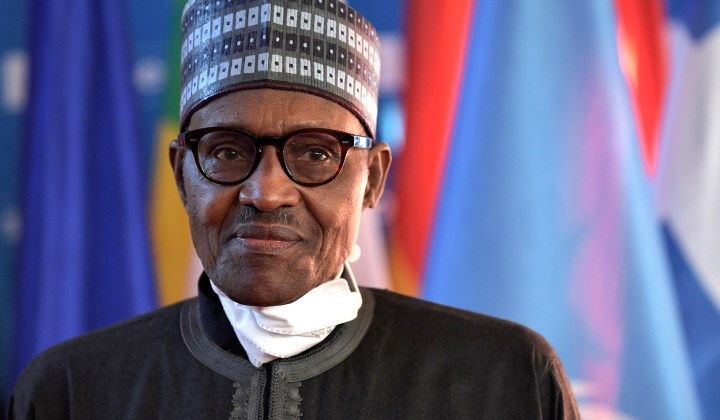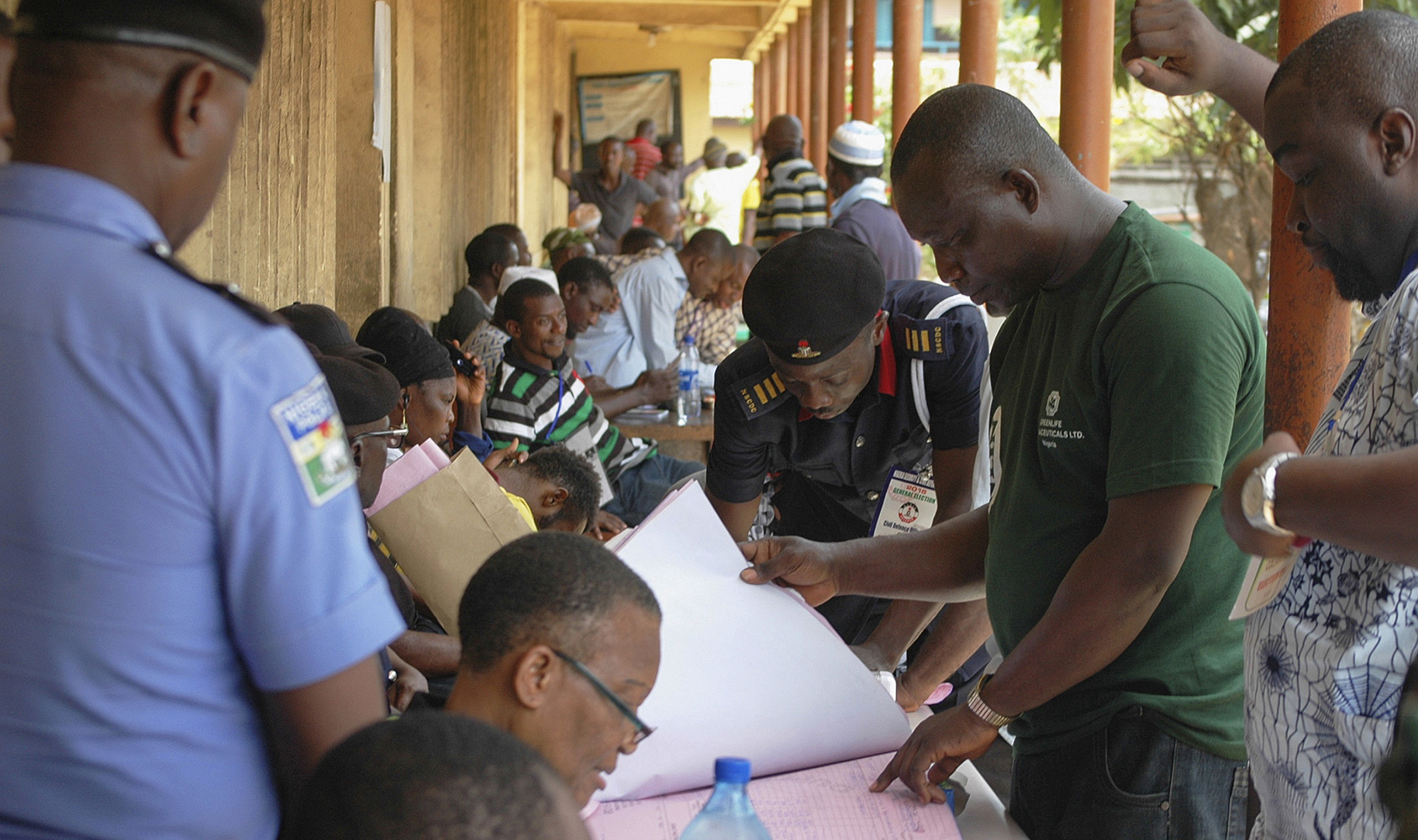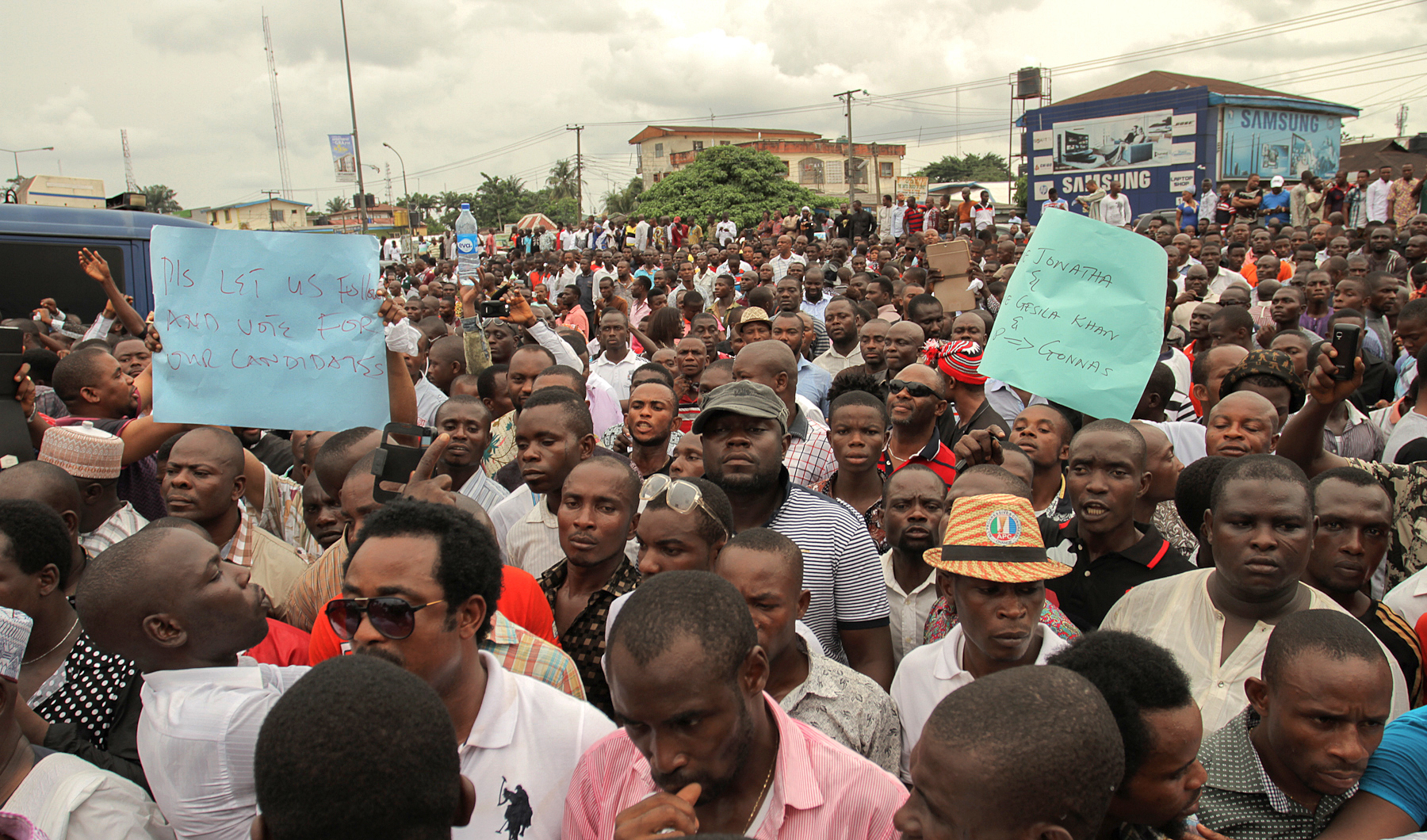MAVERICK CITIZEN: A COUNTRY'S PROMISE
Despite flaws, Nigeria’s new electoral act might be a win for Africa’s largest democracy

The act makes provisions for those involved in ballot box snatching, thuggery and violence to be prosecuted. As much as this is encouraging, Nigeria’s track record in regulatory enforcement in electoral matters is not tenable.
On Friday, 25 February 2022, President Muhammadu Buhari of Nigeria finally signed the Electoral Act Amendment Bill 2022 into law, replacing the extant 2010 Electoral Act. This was after declining on six previous occasions to assent to the amendment bill.
Undoubtedly, the new electoral act is a significant feat in Nigeria’s electoral system, which is expected to translate into free, fair and democratic elections. As the president put it: “There are salient and praiseworthy provisions that could positively revolutionise elections in Nigeria through the introduction of new technological innovations. These innovations would guarantee the constitutional rights of citizens to vote and to do so effectively.” The act would also “improve and engender clarity, effectiveness and transparency of the election process, as well as reduce to the barest minimum incidences of acrimony arising from dissatisfied candidates and political parties”.
The president’s signing of the bill into law has received applause from different sections of society, especially from the members of the civil society organisations who had been at the forefront of pushing for the bill to be signed. For instance, Samson Itodo, the executive director of Yiaga Africa, a civic group that promotes democratic governance, said that the signing of the bill is a victory for Nigeria’s democracy which, in effect, would renew the faith of Nigerians in democracy.

A Nigerian reads a newspaper as electoral officials collate results at a polling station in the oil-rich Niger Delta on 29 March 2015. (Photo: EPA/Tife Owolabi)
Before the signing the polity was heated because Nigerians were not sure if the president would assent to the bill. The reason was that Buhari, citing various reasons, had vetoed six different electoral amendment bills forwarded to him over the past seven years. The latest was in December 2021, when he withheld his assent on the grounds that the bill included mandatory direct primary elections as the mode of electing candidates in political parties. Rather, he proposed that the bill should include consensus candidates and indirect primaries.
After the festive break the national assembly swiftly made the desired changes by adopting direct, indirect or consensus party primary modes of election with strict conditions for what should constitute a consensus candidacy.
But with the reworked bill sent to the president, another issue arose. This time it was Clause 84(12), which provides that anyone holding a political office, such as ministers, commissioners and special advisers, must resign before seeking to run for an elective office.

Nigerian electoral officials work on the collation of presidential and national assembly election results at the local government collation centre in Yaba, Lagos on 29 March 2015. (Photo: EPA / STR)
Though they are constitutionally expected to resign at least 30 days before elections, the norm had been that political appointees tended to run for other offices while holding on to their incumbent positions, which enables them to return to their jobs when they fail to win. Hence, those who stood to be affected lobbied the president to derail his assent.
Not surprisingly, before assenting to the reworked bill, the president raised issues with that clause, saying that it violated the rights of political office-holders to express their political ambitions. He therefore requested that the National Assembly remove the section after assenting. The implication of this would be that political office-holders would continue using state resources and privilege to dominate party primaries.
Nevertheless, several sections of the act have the potential to address the plethora of issues that have undermined the country’s electoral system over the years.
One such is Section (50), which mandates the Independent National Electoral Commission (INEC) to transmit election results electronically. The importance of this section cannot be overemphasised because it prevents fraud and the manipulation of results.
Previously, the outright manipulation of election results was rampant as results were manually conveyed to the collation centres. This allowed malevolent political actors and their cronies to change election outcomes and, consequently, politicians have installed themselves in positions, against the people’s will.
Similarly, sections 47 and 51 will help address issues around voter fraud and multiple voting respectively. These sections legalise the accreditation of voters through electronic rather than manual means, as well as keeping a proper record of the voter’s roll.
Section 65 of the act grants the INEC the power to review election results declared under duress. This issue has become near normal during elections, where malevolent actors have “forced” INEC officials declare false results. In fact there are serving political office-holders who ascended to power in this way.
In addition, the act makes provisions for electoral offenders involved in ballot box snatching, thuggery and violence to be prosecuted. As much as this is encouraging, however, Nigeria’s track record in regulatory enforcement in electoral matters is not tenable. According to the 2021 World Justice Project’s Rule of Law Index, Nigeria scored 0.43 out of one on regulatory enforcement, which means that the rule of law is not effectively enforced.
While Section 3(3) seeks to guarantee the financial autonomy of the INEC, by ensuring that all funding required is released to the body a year in advance, Section 8(5) appears to undermine its political independence.
This section, for instance, seeks to uphold the body’s political neutrality by stating that all electoral officials must disclose their political affiliations and failure to do so will attract a two-year jail term or a $10,000 fine, or both. However, the problem is that this section does not, in its entirety, prohibit the appointment of politically affiliated persons into the INEC at the first instance. They are only required to make disclosures. This implies the political independence of the INEC might be compromised.

Members of Nigeria’s opposition All Progressives Congress (APC) protest against electoral fraud in Port Harcourt in the Niger Delta on 29 March 2015. (Photo: EPA / Tife Owolabi)
Most recently, for example, the Nigerian senate confirmed Professor Rhoda Gumus, a card-carrying member of the ruling All Progress Congress (APC), as one of the INEC’s national electoral commissioners. Before her confirmation, Gumus claimed to have resigned from the party. This was reminiscent of the drama that followed the nomination of Lauretta Onochie, an APC member, for the same position. Her confirmation was declined after an outcry from Nigerians.
These attempts to appoint politically compromised persons to the electoral umpire are not just flagrant violations of paragraph 14 (2)(a) of the 3rd Schedule to the Constitution of the Federal Republic of Nigeria 1999 (as amended), which prohibits the appointment of politicians into bodies like the INEC, but threaten the integrity of the INEC and the elections it will hold. More so, it could undermine the fragile trust Nigerians have in our fledgling electoral system.
Notwithstanding the flaws, the act in its current form has the potential to transform Nigeria’s electoral system, especially with the 2023 general elections, which could be a win for Africa’s largest democracy. DM/MC
Michael Asikabulu is a podcast host at the Public Affairs Research Institute in Johannesburg and a former researcher at the Consortium for Refugees and Migrants (CoRMSA) in South Africa.
[hearken id=”daily-maverick/9226″]


















 Become an Insider
Become an Insider
Comments - Please login in order to comment.